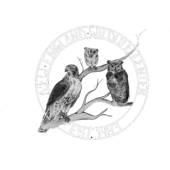All of us are somewhat familiar with ticks and the diseases they carry and can transfer to humans. Ticks can also bite other mammals, including domestic pets and wildlife potentially infecting that mammal with a tick-borne virus like Lyme disease, Babesiosis, Anaplasmosis, and Rocky Mountain Spotted Fever. These viruses present in animals the same way they present in humans:
Fever and chills
Headache
Fatigue
Muscle pain/lameness
It’s important to control the tick population to keep humans and animals safe. One very effective way is to welcome opossums into your yards. Opossums are excellent groomers and they eat more than 95% of the ticks that crawl on them. They eat 5000 ticks in a season, and also offer other benefits. They eat cockroaches and rats and consume dead animals, snails and slugs and eat rotten fruit. They are resistant to snake venom and prey on snakes including copperheads and rattlesnakes. All of this helps to keep your yard cleaner and free of many diseases. Invite opossums to your yard for your health and that of your pets and wildlife. In addition, some ground feeding birds including chickens and guinea fowl eat ticks, and deer ticks are a favorite.
An interesting study from the University of California found that a decrease in wildlife causes and UPSURGE in local tick population. This study highlights the importance of a robust, diverse wildlife population in controlling infectious disease spread. Large mammal conservation can actually reduce the abundance of ticks.
This is a win-win scenario both controlling ticks and conserving species.
West Nile Virus (WNV) is a mosquito-borne virus that infects over 250 species of birds. Birds in the corvid family (crows, blue jays and ravens) are the most likely to die from this disease. Mammals, like humans , can become infected but usually do not develop clinical symptoms. The majority of WNV cases happen in the summer when mosquito exposure is the highest.
Symptoms in infected birds include:
Loss of Coordination
Head tilt
Tremors
Weakness
Apparent Blindness.
The infection is spread by mosquitos biting an infected bird and then biting another victim. Eliminating mosquitos is the best way to stop the spread of this disease. Removing all standing water in your yard is a great help.
Infected birds are often seen on the ground in the same place for many hours. Please consider bringing a bird that presents like this to the Cape Wildlife Center. You can calm the bird by placing a towel over it to cover it’s’ eyes and control the wings. Wear a pair of gloves to protect yourself. At the CWC, birds with WNV are treated for their symptoms. They are kept warm and quiet, given fluids, anti-inflammatories, and nutritional support. Despite our best efforts, the mortality rate remains high.
Newcastle Disease is another contagious viral disease that affects birds, both wild and domestic. It is a widespread problem and considered one of the most virulent poultry diseases worldwide. Infected birds have symptoms that include:
Acute respiratory problems: gasping, coughing
Depression: loss of appetite
Neurologic symptoms: muscular tremors, drooping wings, head twisting, circling, paralysis
Swelling of the eyes
Diarrhea
This virus is highly contagious to birds. At the CWC we see this virus mostly in sea birds such as gulls or cormorants. Turkeys, ducks, geese and pigeons also are at risk. We assign one staff member to work exclusively with these birds and no other animals. Once you touch one these birds, it is five days before you can work with other animals again.
For the public, the threat is primarily to any chickens you have or domestic pet birds including parrots. If you come across a bird with these symptoms, please call your local animal control officer to pick it up and bring it for treatment. If you have handled a sick bird, wash your hands and disinfect clothes and shoes to avoid further spread to other areas. This disease does not pose a risk to humans other than the possibility of conjunctivitis if you were in an at-risk population such as poultry workers.
Birds infected with Newcastle Disease are treated for their symptoms, and given supportive care the same as those with West Nile virus. To protect your animals or the wildlife in your yard, you can clean and disinfect any bird-housing facilities you have. A vaccine is available for birds and is given routinely to poultry flocks. Unfortunately, no vaccine is available to wildlife.
Wildlife can become ill through many sources. If there is a way we can help limit a disease or prevent the spread by taking some preventative measures, it goes a long way to helping out the animals we love to watch in our yards.
To learn more about the Cape Wildlife Center or help in their mission, visit www.capewildlifecenter.com or call 508 362-0111. Stop in to visit our gift shop open 7 days a week 9-4.
Caryn Ritchie is the volunteer coordinator for the Cape Wildlife Center and holds both a Massachusetts rehabilitator’s license and a federal permit to rehabilitate migratory birds.

Recent Comments